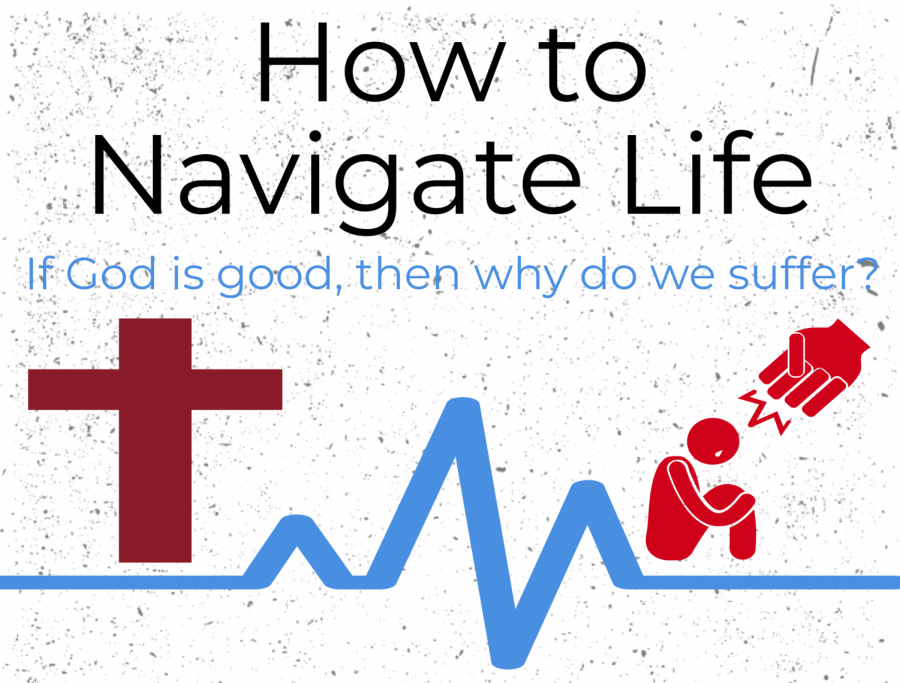logo
If God is good, then why do we suffer?
This age-old question is often posed to argue against the existence of God. What I have learned, however, is that suffering more plausibly points to the very necessity of His existence. Yes, I have only lived a mere sixteen years on this earth, but that does not invalidate my personal struggles, nor does it suggest that I make this claim based only on my limited perspective. Through studying scripture, talking with others, and experiencing my fair share of hardship, I have arrived at the following conclusion:
As human beings equipped with the inherent desire to assign meaning to everything—our existence, relationships, experiences, career paths, etc.—we are naturally inclined to apply the same analysis to our suffering. Especially because, as negative and painful and frustrating as it can be, suffering often forces us to reevaluate the foundation upon which we stand, to doubt, and to question. To wonder if our system of beliefs will withstand the blows. And why that system allows them in the first place.
Here is where the infamous, “If God is good, then why do we suffer?” is asked. What drives us to question the existence of God is not the suffering itself but rather the realization that it often fails to fit within our web of why’s and why not’s—it is not always a clear cause-and-effect situation, or it does not appear to have a distinct, justified meaning.
Because humans have to anchor themselves to something. We are wired to do so. It is neither a fruitless nor abnormal endeavor to search for meaning, but it can certainly feel like one when we search in the wrong places.
Yet I have learned that it is even more essential to acknowledge that God has the right and sovereignty to reserve this meaning for Himself. We are knowledge-hungry beings that want more than we can or will ever take. My capacity of intellect is finite and broken and limited—how can I ever comprehend the mind of the Almighty God who gave me a brain in the first place?
When we approach suffering by testing its rationality, by searching for reason or certainty, it is not actually the logical explanation that we so desperately want. On the contrary, we’re looking for the purpose that a logical explanation may serve us. It offers something to which we may anchor ourselves, an alternative to mystery, to the reality of our depravity, to faith. It acts as a source of comfort, however contradictory: that the depth of our suffering can be knowable, measurable, and thus easier to deal with. It appears to be the safest way to live with our pain without surrendering to a God that we can’t fully understand. To a God to whom our existence is ultimately subject.
And the fact that we cannot rest without this anchor, without the hope of redemption or of healing, should say something significant. Lamenting implies that the death and evil and destruction that we face in this life is frankly not supposed to happen, therefore suggesting that there is a higher Good or purpose that has been broken. It is because we were not made for this fallen world that we are overcome with sorrow living in it.
Still, though, every fiber of my being, of my flesh, of my broken spirit says that suffering is pointless. I’ve felt and thought and fallen far too much and far too hard to ever be satisfied with the response, “It’s just God’s will.” No matter how often I try to convince myself the opposite or tell it to others or write it in a blog. There is a low hum, an inherent darkness that never ceases to cloud my vision, and for once I wish I were too dumb to see it.
This is the reality of the fallen world. But there is one thing I can say confidently, despite the fact that it directly contradicts the pain and doubt and despair of my flesh. Because I have suffered, I know that God is good. I would not know His immeasurable goodness were it not for an immeasurable pain.
Let your suffering draw you closer to Him. I have found that nothing else satisfies–even if I still don’t know all of the answers. I was not created to understand my Creator, and I’m still learning how to accept that.

